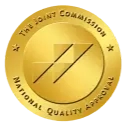Drug and Alcohol Detox Center
The 11th of April marks a day dedicated to both raising awareness of the debilitating effects of alcoholism as well as encouraging individuals and industries to take part in these forms of testing. National Alcohol Screening Day was launched in 1999 and has grown into a nationwide initiative over the years. We are an Atlanta alcohol detox center that recognizes the importance of this testing and works to offer the necessary support to those facing their bouts of alcohol withdrawal. Read on to learn more about the types of tests used to screen a person’s alcohol intake and why each alcohol abuse screening tool is so important.
How Is Alcohol Screened?
Alcohol screening methods vary depending on the purpose and context of the screening. From workplace safety to law enforcement and healthcare settings, different techniques are employed to detect alcohol consumption accurately.
Common types of alcohol screening tools include:
- Breathalyzer Tests: Perhaps the most well-known approach, breathalyzer tests analyze the air a person exhales to determine the amount of alcohol in their blood. These devices estimate blood alcohol content (BAC) indirectly by using fuel cell technology or infrared spectroscopy.
- Blood Tests: These can directly determine the amount of alcohol in a person’s bloodstream. Though they are highly accurate, blood alcohol screening is invasive. Due to this, they are usually only used in extreme circumstances, such as court cases, medical emergencies, or situations requiring extreme precision.
- Saliva Tests: Often referred to as oral fluid testing, saliva tests examine a sample of saliva to determine whether alcohol is present. These tests are helpful for workplace and roadside screening because they can yield results quickly and are less invasive than blood tests.
- Urinalysis: When the body breaks down alcohol, it produces metabolites, including ethyl glucuronide (EtG) and ethyl sulfate (EtS), which can be found in urine. While urine tests are frequently employed in treatment programs and probation supervision, they might not be as reliable as breath or saliva tests in determining recent alcohol intake.
- Hair Follicle Tests: By examining tiny amounts of alcohol and its metabolites that are absorbed into hair during growth, hair follicle tests can identify alcohol consumption over a prolonged period. This method’s longer detection window and higher expense make it less popular for routine screening.
Each alcohol screening test plays a crucial role in various settings, helping to ensure safety, enforce laws, and monitor individuals’ health. By employing appropriate screening methods, authorities and organizations can effectively address alcohol-related issues and promote responsible behavior. If you or a loved one needs additional assistance in addressing issues of alcohol withdrawal, call our Atlanta detox center at 844-658-0927.
Why Is Alcohol Screening Important?
Alcohol screening is essential for many different industries, including addiction treatment, law enforcement, healthcare, and occupational safety. Its value stems mostly from its involvement in identifying persons who may be at risk of alcohol-related damage. Healthcare providers can quickly take action to avoid or lessen the harmful health impacts of excessive alcohol intake by identifying alcohol misuse early on. The goal of this early intervention is to improve health outcomes and lessen the strain on healthcare systems. It can take many forms, from counseling and education to directing people to specialized treatment programs.
Additionally, a drug screening test for alcohol helps to increase public safety by lowering the number of accidents and injuries caused by alcohol. Screening can assist in detecting persons who may be impaired by alcohol in workplaces and transportation sectors, reducing the risk of accidents, injuries, and fatalities. Pre-employment alcohol screening, for instance, may prevent people with alcohol-related impairments from operating heavy machinery or carrying out duties requiring coordination and awareness in situations where safety is a priority.
Similarly, law enforcement agencies’ use of roadside alcohol screening contributes significantly to the enforcement of alcohol-related legislation and the prevention of drunk driving, both of which increase road safety for all drivers and pedestrians.
Alcohol screening is also essential to the efficient treatment of substance use disorders and alcohol addiction. Screening helps those who are abusing or dependent on alcohol get access to detoxification, counseling, and recovery programs, among other relevant treatment and support resources.
Individuals can receive appropriate treatments and assistance when alcohol-related problems are detected early through screening. This improves their chances of recovery and lowers the societal and financial costs related to alcohol-related disorders. In general, alcohol screening is a proactive approach to protect public health, advance safety, and tackle the complex issues associated with alcohol abuse and addiction.
Get Treated at Our Alcohol Detox in Atlanta
At our alcohol detox centers in Atlanta, GA, we recognize that alcohol screening is not just a formality but a vital component of our commitment to providing comprehensive care. Through our specialized men’s and women’s detox programs, tailored interventions are designed to address the unique needs and challenges faced by individuals on their journeys to recovery from alcohol dependency.
If you or a loved one is struggling with alcohol addiction, we invite you to reach out to Atlanta Detox Center today. Contact us to learn more about how we can help you pave the way toward a brighter, healthier future.







